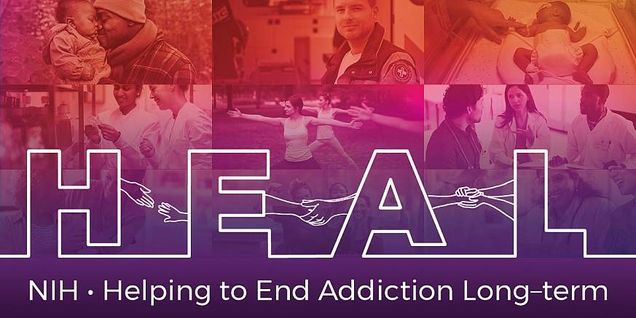HEALing Communities Study

Principal Investigator
Jeffrey Samet, MD, MA, MPH, Boston Medical Center, Boston University Schools of Medicine and Public Health
Key Personnel
Joshua Barocas, MD – Health Economics Core Director
Tracy Battaglia, MD – Community Engagement Core Director
Mari-Lynn Drainoni, M.Ed., Ph.D – Implementation Science Core Director
Colleen LaBelle, MSN, RN-BC, CARN – Office-Based Addiction Treatment Director
Marc LaRochelle, MD, MPH – Informatics Core Director
Michael Stein, MD – Communications Core Director
Alexander Walley, MD, MSc – Care Continuum Core Director
Project Director
Carly Bridden, MA, MPH
Staff
Dacia Beard – Communications Core
Donna Beers – Care Continuum Core
Caroline Savitzky – Health Economics Core
Elizabeth Kinnard – Implementation Science Core
Grant Abstract
The National Institute on Drug Abuse (NIDA) and the Substance Abuse and Mental Health Services Administration (SAMHSA) launched the HEALing Communities Study (HCS) in April, 2019 to test the impact of a community-engaged intervention on community-level opioid overdose (OD) deaths. The study is a multi-site, parallel arm, cluster randomized, wait-list controlled trial. The HCS will test the impact of a comprehensive, data-driven community response plan to deploy evidence-based practices (EBPs) across multiple sectors to reduce opioid-related OD deaths.
The primary goal is to reduce opioid-related OD deaths in communities receiving the HCS intervention (Wave 1) during the 2nd year of implementation compared to communities that will receive the intervention after the second year (Wave 2). A total of 67 communities in 4 states [Kentucky (KY), Massachusetts (MA), New York (NY), and Ohio (OH)] will be enrolled in the study to measure the impact of the intervention. Four research sites will test the Communities That Heal (CTH) intervention: Boston Medical Center, Columbia University, University of Kentucky, and Ohio State University. The research sites are supported by a data coordinating center–RTI International.
The CTH is a conceptually driven intervention based on the Communities That Care model for organizing evidence-based prevention efforts within communities. The CTH framework will guide communities through the process of: 1) developing new and/or strengthening existing community coalitions that could address their opioid crisis; 2) mobilizing coalitions to create a collective and common vision on how to address the local opioid crisis; 3) using data to explicate the nature, severity, and trends of the local opioid crisis and prevention and treatment gaps; 4) developing a data-driven strategic plan to implement and expand delivery of evidence-based prevention and treatment practices linked to local needs across multiple community settings; 5) implementing and evaluating the CTH strategy; and 6) planning for sustainability.
The primary study aims are to: 1. Determine the impact of the CTH intervention on decreasing opioid-related overdose fatalities. 2. Determine the impact of the CTH intervention on secondary outcomes. 3. Determine factors (structural, organizational, policy, etc.) that contribute to successful implementation of the CTH Intervention. 4. Determine factors (structural, organizational, policy, etc.) that contribute to sustainability of the CTH intervention. 5. Determine the incremental costs and cost-effectiveness of the CTH intervention